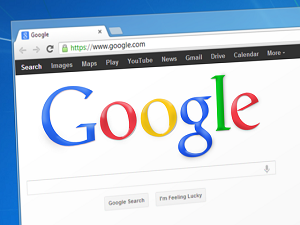 Joining Apple in more than just smartphone operating system privacy complaints from the federal government, Google is now getting the fallout from the iCloud hack of the nude celebrity photos. Naturally, if it is worth searching for it can be found on Google. That is what it does. Unfortunately, that also includes being responsible for searches for the stolen celebrity pics. Recent searches done by various organizations are still able to find sites and user accounts where the photos can be viewed. Thus, Martin Singer, an attorney for the celebrities, has sent a letter to Google threatening legal action if their site is not completely scrubbed of any links to the images. Also, he is requesting that any user account information be retained by Google for the purposes of future potential litigation.
Joining Apple in more than just smartphone operating system privacy complaints from the federal government, Google is now getting the fallout from the iCloud hack of the nude celebrity photos. Naturally, if it is worth searching for it can be found on Google. That is what it does. Unfortunately, that also includes being responsible for searches for the stolen celebrity pics. Recent searches done by various organizations are still able to find sites and user accounts where the photos can be viewed. Thus, Martin Singer, an attorney for the celebrities, has sent a letter to Google threatening legal action if their site is not completely scrubbed of any links to the images. Also, he is requesting that any user account information be retained by Google for the purposes of future potential litigation.
The Problem of Popularity
More than a few people see this action as a means to gain more free celebrity advertising. There is an irony here, but only because the entity being sued happens to be a source of exposure for the celebrities - wanted or unwanted. It is unclear whether any other of the major search engines are being warned about the potential legal consequences for not deleting the tracks of the photos in question.
Beyond Google’s financial worth, the sheer number of web pages the search engine giant has to manage is unfathomable for most people. Only the most celebrated of the celebrities in question are named in most articles about the hack. Crawling through every single instance of every web site that has a remote possibility of possessing the photos, banning the link, and retaining the account information of the alleged perpetrator simply takes time. But Google, being more popular than the celebrities whose photos have been hacked, is an obvious target for legal action.
The Legality of It All
Singer claims that Google is making millions of dollars because they did not "act expeditiously and responsibly to remove" the stolen images. The legal argument is both profit motive on the part of Google and that “Google continues to thumb its nose at my [Singer’s] clients' rights -- and continues to both allow and facilitate the further victimization of these women.” Parts of the legal argument are comical in that Google scarcely needs the profit of a few celebrity pics to keep its revenue flowing and that women such as Kate Upton and Jennifer Lawrence – who let’s face it, many people had never heard of before all this commotion - are being “victimized”, when no small part of their income comes from sexualizing their persona.
The fact that the photos in question are of female celebrities makes it something Google must deal with quickly. When any company is accused of victimizing women, the fallout can be devastating. It is not that people will stop using Google. It is that Google will end up paying out millions because it was put in the middle between these celebrities and a very few number of people who decided to violate their rights and privacy. Whether you agree or disagree with how actors and actresses make their money, they are entitled to their privacy when such rights are assured to them by a corporate entity.
What has not been properly viewed in this discussion is, how is Google legally responsible for the act of the hackers? Google’s response to the legal threat is, "We've removed tens of thousands of pictures … within hours of the requests being made … and we have closed hundreds of accounts. The Internet is used for many good things. Stealing people's private photos is not one of them." There seems to be more than a hint of annoyance by Google that because these people are celebrities their stolen data should have a higher priority than anyone else’s data which has been compromised.
Personalizing the Offense
The question is, how would Google treat such a request by an average user or business? One answer would likely be, no differently than it does any number of requests it gets daily to deal with such situations. Is the public supposed to get into a froth because the people whose accounts were hacked happen to be celebrities? Google is certainly in the middle of this after Apple has closed the matter and Twitter has taken its own steps to resolve the issue. But Google is not Apple or Twitter. Maybe this is one of the downsides of companies having the same legal rights as people – they will have to eventually fight for equality in the courts.

 (918) 234-1077
(918) 234-1077 
